Technician Blog - the power of collaboration
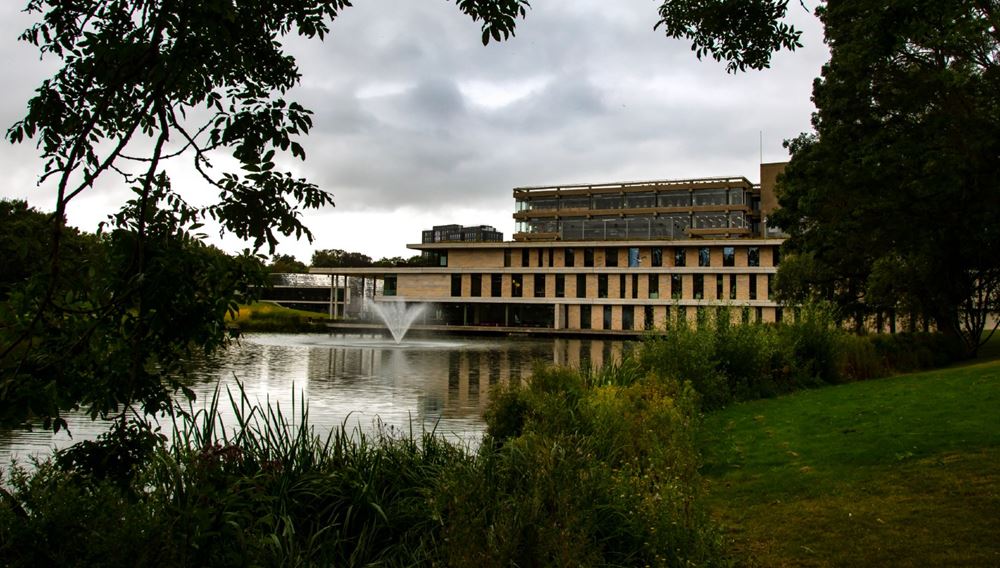
As part of our Technician Commitment award we are showcasing the valuable role our technicians play across the University in helping Essex deliver excellence in research and excellence in education.
In this blog Chris Spice, technician manager in the School of Sport, Rehabilitation and Exercise Science, looks back on the Eastern Arc Technicians' Network conference he organised at Essex and the lessons learned through collaboration.
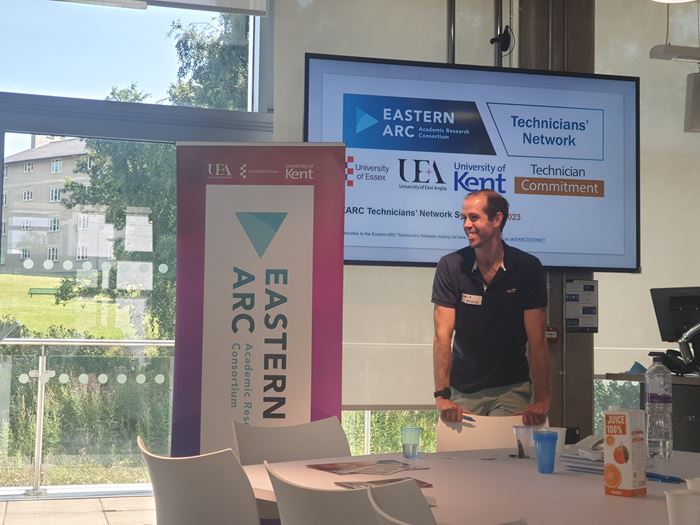
Why did you organise this conference and how did it go?
I got involved in organising this conference as part of my role as co-chair of the Eastern ARC Technicians Network.
This is a new initiative run in parallel with the Eastern ARC research consortium and we really wanted a face-to-face event to launch the network.
I, as well as the other organisers, Jo Scamp from Kent and Matthew Bennet from UEA, were delighted with how the event went.
We saw around 15 technicians attend from each Essex, Kent and UEA, across a broad range of subject disciplines share incredibly positive discussions about issues that face us all and suggestions of ways we might be able to improve it.
This has given the technicians network a brilliant foundation on which to move forward and some more focus around what the members would like its goals to be.
What did you benefit as a technician and how important was it to meet your peers?
Getting everyone to meet face to face produced some positive small group discussions that could then be fed back to the large group, and I think this really helped to develop the sense of community we hope to build on going forward and I am not sure we would have had through an online meeting.
What was the highlight?
For me, the real highlight was seeing technicians from different universities who have never met before having discussions around their specific areas of experience, either within the larger group discussion or on a more personal one to one basis.
Particularly seeing a younger technician express an interest in a certain area and one of the more experienced members offering to show and talk to them about the equipment they work with was exactly the sort of thing, we as a technical community, should be doing to help each other develop their careers and hopefully this conference was just the starting point for some of these discussions.
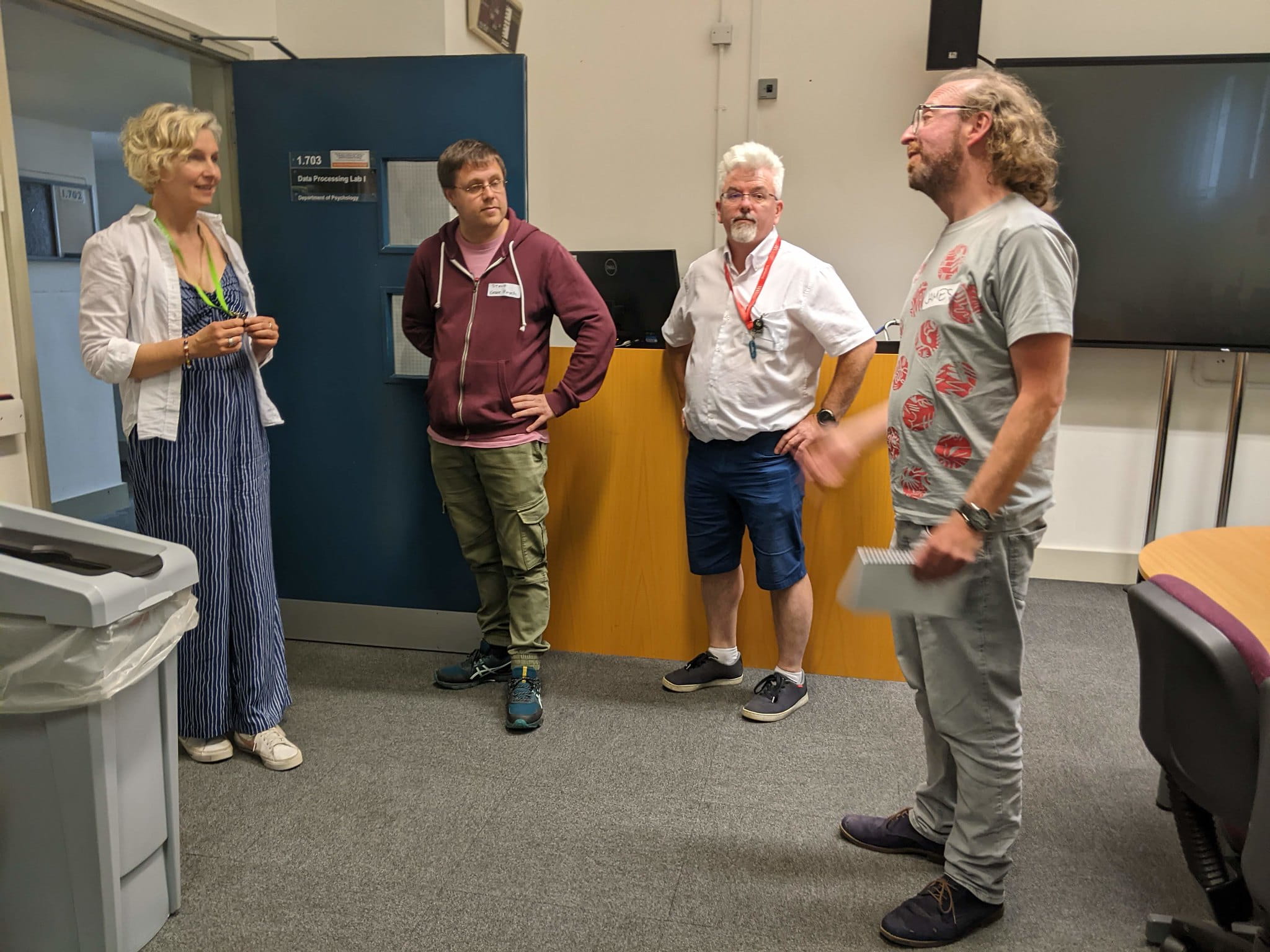
How has Essex supported the conference?
Through the universities UKRI research culture funding we were fortunate to be funded to host the event at Essex.
This also enabled us to invite Catrin Harris from MI Talent to talk to the group around the research they have been doing into Research Culture from a technician’s point of view.
The event was also support by the University of East Anglia, University of Kent and the Technical Commitment.
What is your role at Essex and what are your main duties?
I am the Technician Manager for the University’s School of Sport, Rehabilitation and Exercise Sciences.
My main duties in the role are overseeing the running of the schools’ laboratories and the management of the technical team.
One of the biggest tasks I have now is moving the school over to an online equipment and facility management system.
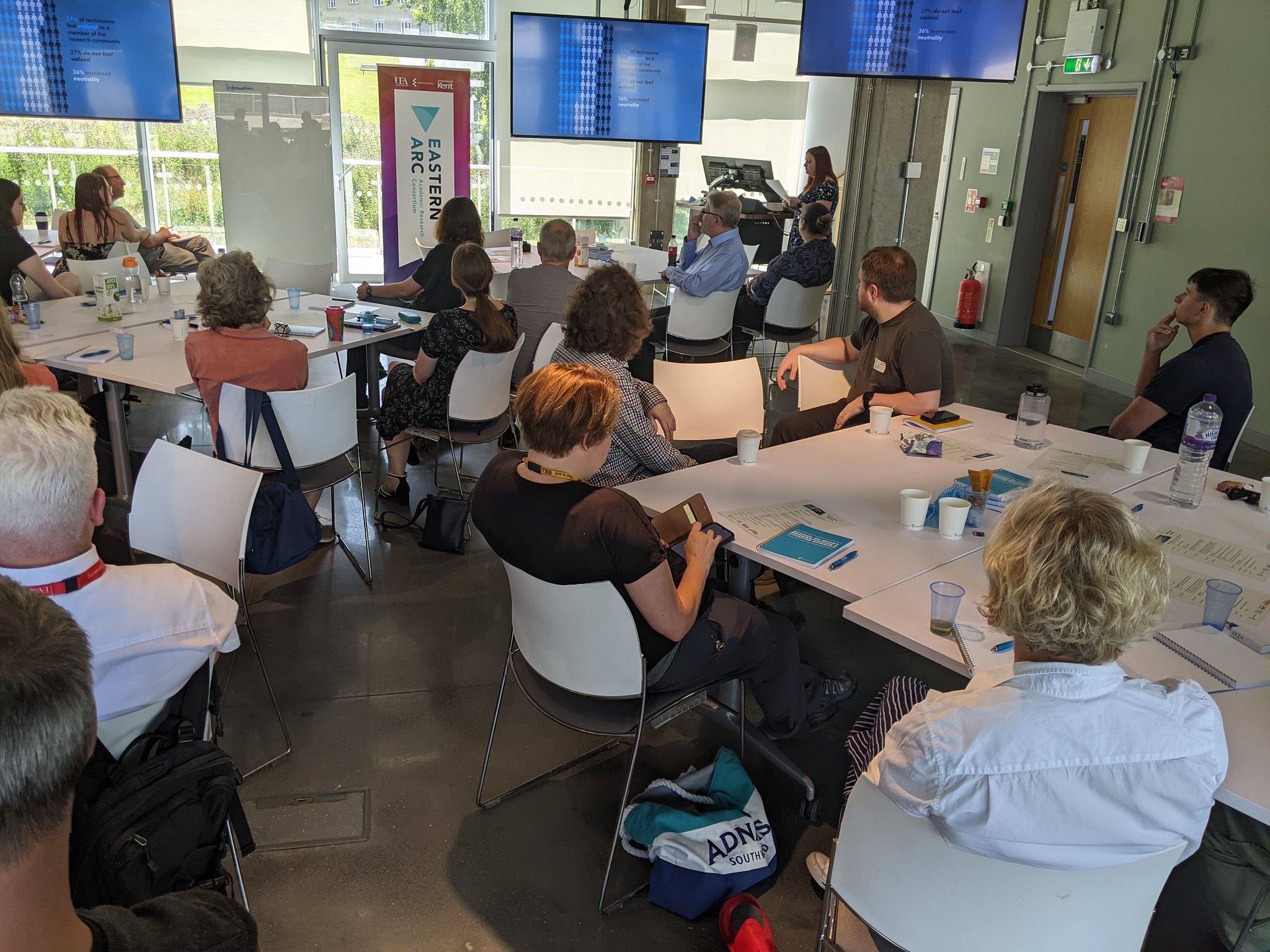
What was your career background before Essex?
I have been a Sport Science technician in a variety of capacities for the last 13 years, working at several different UK Universities.
My areas of focus have been around biomechanics and performance analysis and have helped to teach and research within these areas.
Outside of Universities I have also helped with providing performance analysis and event support in hockey, football and canoe slalom.
What do you enjoy most and least about the job?
The least enjoyable part of the job is unfortunately the necessary evil of paperwork, and the more senior I have become within the role the more that has taken up my time.
But unfortunately, without the health and safety documents and other policies in place we would not be able to do all of the work that we do.
For me, by far the most enjoyable part of the job is when people come with a problem, and you need to find a solution.
This could be something is broken, or they want to find a new way to measure something with the kit we have.
I think I have slowly learnt that I can be quite a creative person when looking for solutions and this ties in with quite a methodical approach to problem solving and means I really relish a good challenge.
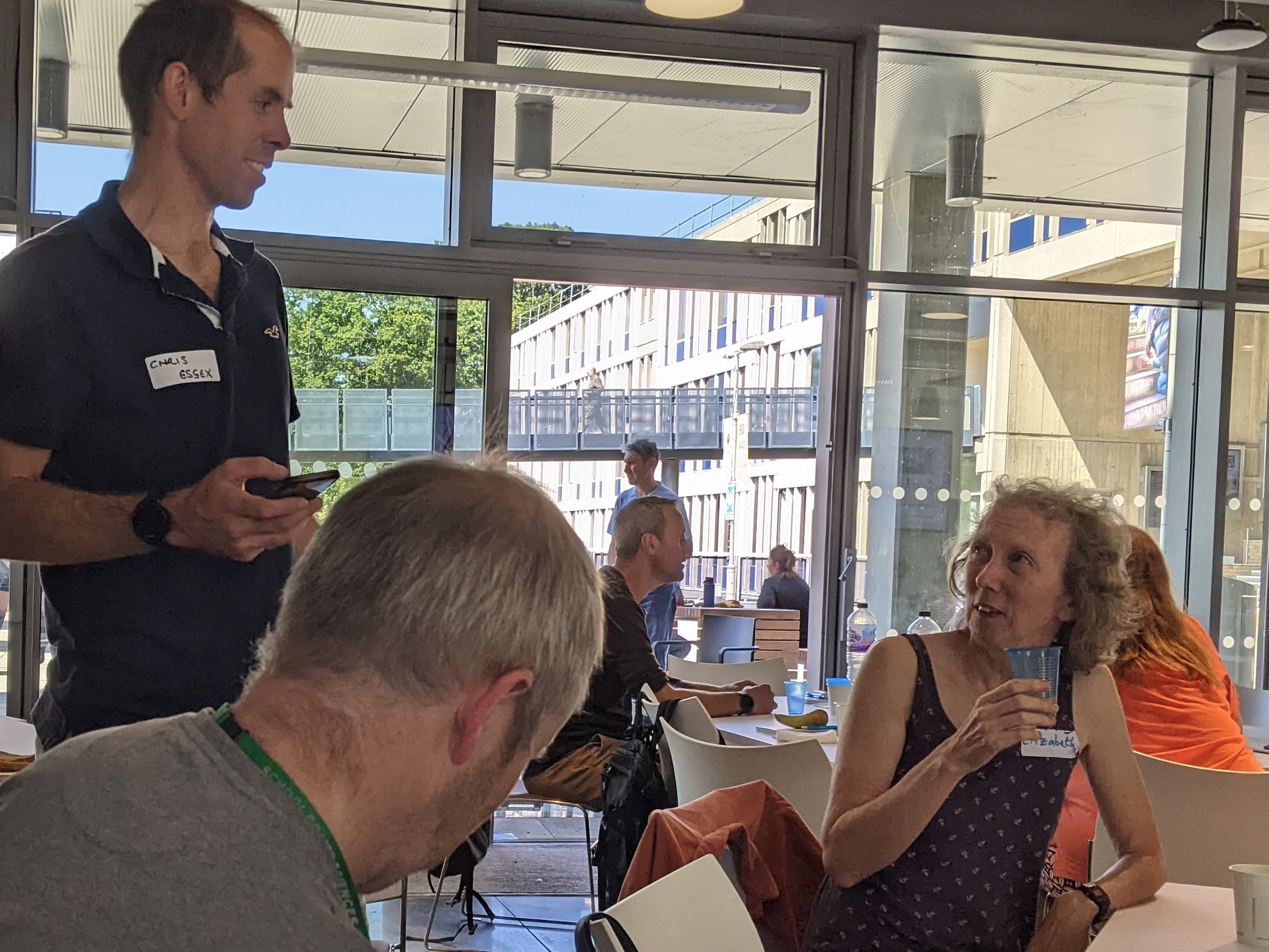
What advice would you give to aspiring technicians?
It can be quite a hard sector to get into at times, a lot of the posts that get advertised need some experience using specific kit or in specific subject areas so I would advise getting as much practical hands on experience when you have the opportunities as you can, whether that is through helping out during studies or volunteering your time to help with research activities.
The other big thing is made sure you give yourself the best chance you can to get your foot in the door.
Look very clearly at the skills the job role is asking for, there are a lot of transferable skills that make people well suited to a technical role but often applicants fail to appropriately apply their experiences to the specifics of the role.
But it is a hugely enjoyable and rewarding career that is always changing and increasingly, through the work of the technical commitment, which is very well supported at Essex, giving those within it a wide range of career opportunities.
More pictures of the event can be seen online

